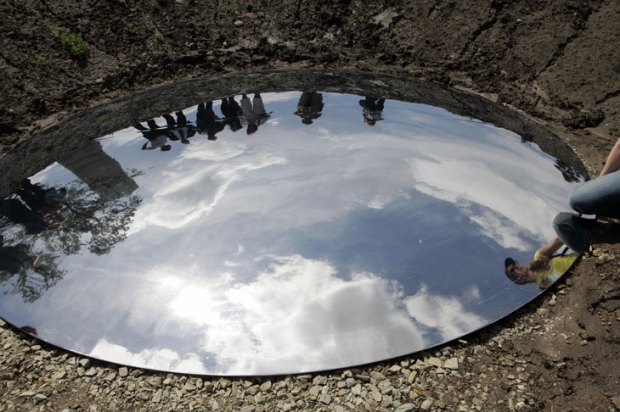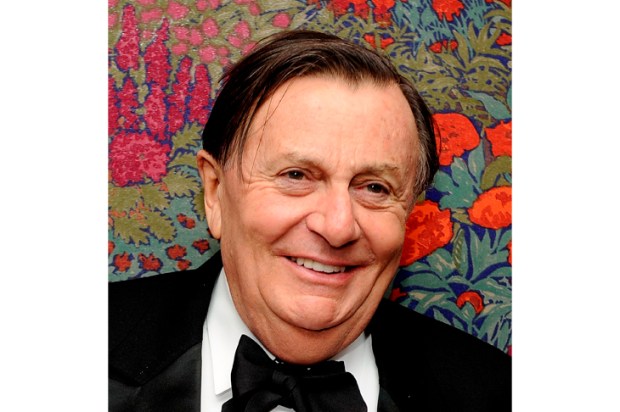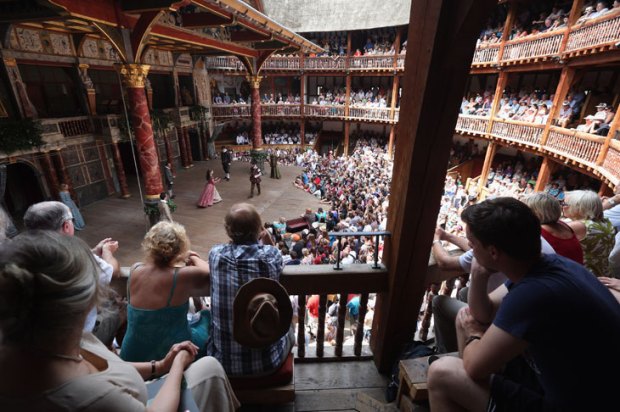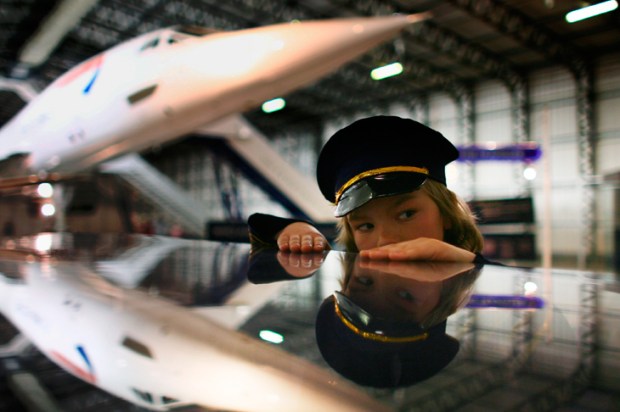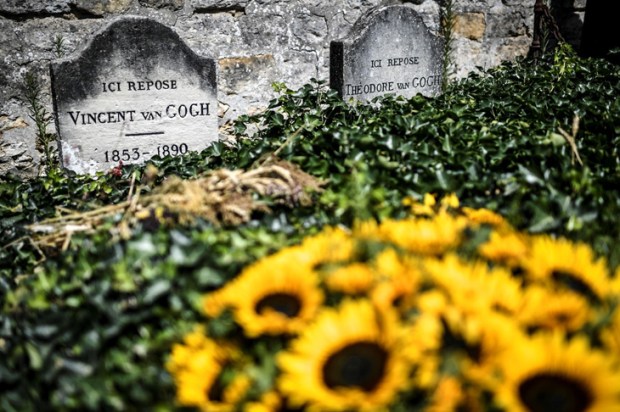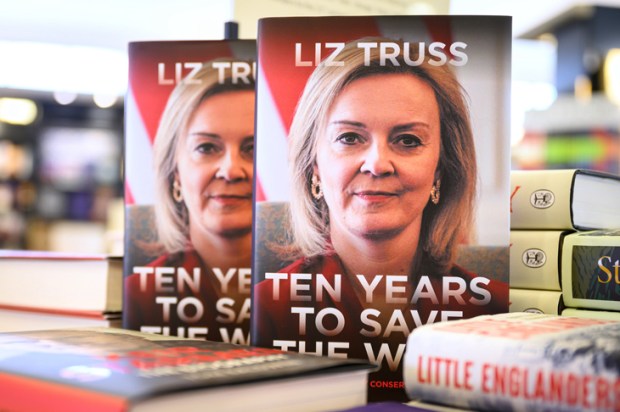I am a stickler for the rule that a London diary should start with a cabbie story, so…
In a taxi en route to the Hotel Russell in Bloomsbury the driver, having detected the Australian accent, holds forth on the excellence of Tony Abbott’s border protection policies. He was a jovial, voluble chap, yet his position might be summarised, with no risk of oversimplification, as Keep the Bastards Out. In the interests of fairness I pointed out that the present Prime Minister was not the innovator of this idea and nor did he have a mortgage on it: Keeping the Bastards Out was a bipartisan platform. This information amplified our friend’s enthusiasm for the Australian project. ‘They let anyone in here,’ he lamented of his own little island.
I was sceptical about that last observation. Not anyone, surely. Within the hour I was proven wrong when, wandering near King’s Cross-St Pancras train station I bumped into Tim Winton, looking like an antipodean Kaspar Hauser, his long hair loose and lank in the near-summer drizzle, his eyes a little wild with the stress of 24 hours of subtitle-free Wagner. We took a walk and ended up outside rooms once occupied by W.B. Yeats. ‘I prefer Auden,’ Winton said, but neither of us knew where he lived.
Perhaps I overstate the coincidence: Winton was in London, as was I, for the inaugural Australia and New Zealand Festival of Literature and Arts, held over four days at the Strand campus of King’s College. Winton, a four times winner of the Miles Franklin Literary Award, had an interesting take on the possible benefits of such a gathering, comparing Australian writers with a herd of cattle. David Malouf and Peter Carey, a generation older than Winton, had cleared their bits of grass and now writers such as himself and Richard Flanagan and Kate Grenville were clearing theirs. And if this festival allowed ‘a few stragglers’ to push forward and claim their own patch of the paddock, that would be a good result. As for himself, Winton said when he first started doing book tours in Europe in the Eighties ‘Australian writer’ was considered an oxymoron. But these days ‘I don’t feel like I am parachuting behind enemy lines.’
Clive James was the star of the festival, his one-man show standing room only. The 74-year-old, terminally ill in body but puckish in mind, wowed the crowd with a performance that ranged from Pushkin to Kirk Douglas, Dante to Game of Thrones, Hitler to Jeffrey Archer, ‘the first author to break into a bookshop’ to sign copies of his novels. ‘They laughed, they cried’ would be the playbill blurb. He confessed he decided to do the event despite his health problems because like ‘every red-blooded Australian male’ his aim was ‘to impress Tony Abbott’s daughters’. But other than that he eschewed politics in favour of poetry, reading his own works and from his recent translation of Dante’s The Divine Comedy. James, best known for his Wildean wit and his work on and about television, has always wanted to be taken seriously as a poet, and I couldn’t help but think it was a bit unfair he had to be at death’s door before he could command an hour on stage talking about the thing he loves. Still, Clive of Kogarah was sanguine about it: ‘Television paid for the groceries. As a poet I would have starved.’
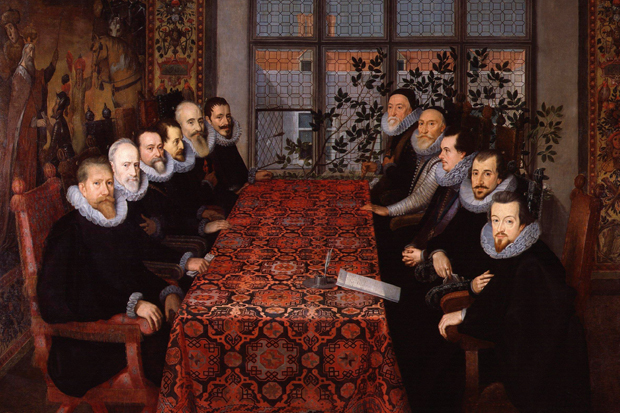
While we are thinking of poetry, I must share this bit of literary criticism by my travelling companion, made off-the-cuff as we roamed the National Portrait Gallery: ‘I didn’t know Donne was good-looking.’ A case of whatever tolls your bell, I suppose.
Speaking of bells, St Martin’s pealed as we waited for the gallery to open, which recalled ‘Oranges and Lemons’, which in turn reminded us, via its cutting final lines, to try for tickets for the Royal Shakespeare Company adaptations of Hilary Mantel’s Wolf Hall and Bring Up the Bodies at the Aldwych Theatre. We were fortunate enough to secure seats for the latter, which was superb. It wasn’t until after the show, though, that Google helped me place Ben Miles, who plays Thomas Cromwell: he was the manipulative, seductive, well-endowed Patrick Maitland in the BBC comedy series Coupling. It seems the poor man is typecast as the Big Swinging Dick.
Which brings me to the Australian historian Clare Wright, author of the award-winning The Forgotten Rebels of Eureka, about women on the 1850s Ballarat goldfields. Wright, a good writer and a good sport, got a rise out of some people recently when she claimed the display stands at the front of bookstores were ‘dick tables’, by which she meant dominated by books about men written by men for men. This fluttered to mind at the Portrait Gallery while looking at The Somerset House Conference, 1604, which depicts the delegates, seated at a long table, to the peace talks that ended two decades of war between England and Spain. Now that, I thought, was a dick table. Moving along, I found myself in front of Lord Randolph Churchill, Winston’s pater. Whatever you may think of penises in general, surely this is one member for which we but can be grateful.
Got something to add? Join the discussion and comment below.
Stephen Romei is the Australian’s literary editor.
You might disagree with half of it, but you’ll enjoy reading all of it. Try your first month for free, then just $2 a week for the remainder of your first year.

